If I Had a Million

Brief Synopsis
Cast & Crew
Gary Cooper
Charles Laughton
George Raft
Jack Oakie
Richard Bennett
Charles Ruggles
Film Details
Technical Specs

Synopsis
Prologue : Cantankerous tycoon John Glidden, whose relatives and employees expect him to die shortly, stubbornly refuses to give his fortune to the squabbling, greedy bunch, and determines to give it instead to people who might appreciate it. He then decides to give a million dollars a piece to various people chosen at random from the phone book.
China Shop : The first recipient of Glidden's money is henpecked Henry Peabody, who has spent years handing over his wages to his nagging wife. Because his salary has consistently been docked for breaking china, Henry gleefully takes the opportunity to smash the entire inventory of the shop.
Violet : Prostitute Violet Smith receives her money in a bar, then rents an expensive hotel room and enjoys the luxury of sleeping in a luxurious bed--without having to keep her stockings on.
The Forger : Forger Edward Jackson, frantically fleeing the police, finds that he cannot cash his check. He tries every means possible to borrow on the check or sell it for smaller and smaller amounts of money. Finally, starved and exhausted, he gives it away in exchange for a ten-cent bed.
Road Hogs : Emily La Rue and her companion Rollo, ex-vaudevillians, are over-joyed at their newly acquired fortune. When they purchase a car, however, it is almost immediately forced off the road by a "road hog." Their money enables them to take their revenge on the road hogs of the world by buying a fleet of cars and joyfully running ill-mannered drivers off the road.
Death Cell : Death-row prisoner John Wallace is distressed to find that his new money will not save him, but he is comforted to know that his wife Mary will be financially secure after his death.
The Clerk : Office employee Phineas V. Lambert receives his money and calmly leaves his desk, walks to the office of the company president, and unceremoniously gives him "the razzberries."
The Three Marines : Marine Corps private Steven Gallagher and his friends Mulligan and O'Brien believe that his check is an April Fool's Day hoax. Because they want to take waitress Marie to a carnival and have no money to finance the date, they sign the check over for ten dollars cash to Marie's boss, the owner of the local lunch wagon.
Grandma : The last recipient, feisty Mary Walker, is one of the many unhappy old women who live at a rest home run by a heartless matron. The women are not only lonely, but feel useless because they are prohibited from doing anything other than sitting idly in their rocking chairs, talking and knitting. With the money, Mrs. Walker buys the home and gratifies the wishes of its inhabitants by letting them do all of the chores and making the matron and her employees simply sit and rock. Impressed with Mary's spunk, Glidden is apparently cured of his terminal illness and decides to spend his time at the home with Mrs. Walker, and happily plans for a romantic hayride with her.

Cast

Gary Cooper
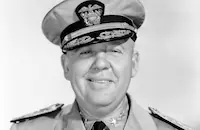
Charles Laughton

George Raft

Jack Oakie

Richard Bennett
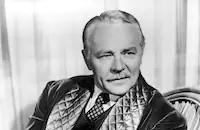
Charles Ruggles

Alison Skipworth

W. C. Fields

Mary Boland
Roscoe Karns

May Robson

Wynne Gibson

Gene Raymond

Frances Dee
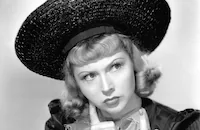
Joyce Compton

Cecil Cunningham
Blanche Friderici

Lucien Littlefield
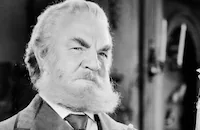
Berton Churchill
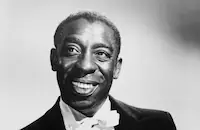
Clarence Muse
Frederick Santley
John St. Polis
Dewey Robinson
Tom Ricketts
Effie Ellsler
Margaret Seddon
Ida Lewis
Lillian Harmer

Shirley Grey
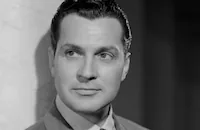
Kent Taylor
Wallis Clark
Harry C. Bradley

Irving Bacon

Ernest Truex

William V. Mong
Fred Kelsey
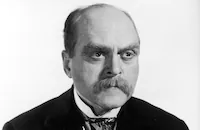
Grant Mitchell
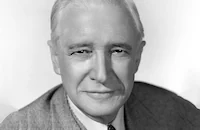
Samuel S. Hinds
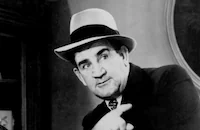
Tom Kennedy
Jack Pennick
Robert E. Homans
Hooper Atchley

Bess Flowers
Walter Percival

Gail Patrick
Willard Robertson
Reginald Barlow
Jerry Tucker
Margaret Mann
Ruby Lafayette
Gertrude Norman
Lydia Knott

Edith Yorke
Emma Tansey
Crew
Lou Asher
Claude Binyon
Whitney Bolton
Malcolm Stuart Boylan
John Bright
Sidney Buchman
George Clemens
Lester Cole
James Cruze
Fred Datig
Isabel Dawn
Walter De Leon
Boyce Degaw
Harry Fischbeck
Oliver H. P. Garrett
Harvey Gates
H. Bruce Humberstone
Art Jacobson
Ernie Johnson
Grover Jones
Paul Jones
Louis D. Lighton
Ernst Lubitsch
Ernst Lubitsch
Lawton Mackall
Joseph L. Mankiewicz
Norman Mcleod
William Slavens Mcnutt
Seton I. Miller
Stephen Roberts
C. Edgar Schoenbaum
Harold Schwartz
William J. Scully
William A. Seiter
Robert Sparks
Norman Taurog
Tiffany Thayer
Frank Titus
Gilbert Warrenton
Alvin Wyckoff

Film Details
Technical Specs

Articles
If I Had a Million
The Fields episode, frequently cited as the favorite of the film's fans, casts the comic as Rollo La Rue, a down-and-out vaudeville juggler recalling Fields' own past as a juggling headliner. When Rollo's wife (Alison Skipworth) receives the $1 million check, the couple sets out on a mission to avenge the wrecking of their prized automobile by "roadhogs." They spend the money for a convoy of new cars and a group of tough chauffeurs, and then take to the streets in search of rude drivers whose vehicles they destroy by ramming into them! This was one of a series of Fields films in which his personal obsessions were incorporated into the script. In real life, he had a passion for automobiles and a loathing for other drivers especially those who inconvenienced him.
Joseph L. Mankiewicz, later to become the Oscar-winning writer-director of A Letter to Three Wives (1949) and All About Eve (1950), wrote the screenplay for the Fields episode of If I Had a Million. The association between writer and star dated to Mankiewicz' teens, when he was introduced to Fields by his screenwriter brother Herman Mankiewicz, also to become an Oscar-winner, for Citizen Kane (1941). Fields agreed to an interview by young Joe for the newspaper of his Brooklyn high school, and was so impressed by the results that he sent a congratulatory note to the precocious teen.
After the filming of If I Had a Million, Fields sought out Joseph Mankiewicz to buy some of the comic material that had been written for his character notably the phrase "my little chickadee," which Rollo used in addressing his wife and which would become the title of a 1940 film costarring Fields and Mae West. Mankiewicz demurred, pointing out that Paramount was now the owner of the material. But Fields insisted, a gesture that Mankiewicz attributed to the "incredible punctiliousness about material that is one of the great attributes of the old-time vaudevillian." The payment was $50 cash.
Producers: Louis D. Lighton (uncredited), Benjamin Glazer (associate; uncredited)
Directors: James Cruze, H. Bruce Humberstone, Ernst Lubitsch, Norman Z. McLeod, Stephen Roberts, William A. Seiter, Norman Taurog
Screenplay: Robert Hardy Andrews, Robert Sparks, Grover Jones, William Slavens McNutt, Lawton Mackall, Joseph L. Mankiewicz, Oliver H.P. Garrett, Harvey Gates, Claude Binyon, Malcolm Stuart Boylan, Whitney Bolton, John Bright, Sidney Buchman, Lester Cole, Isabel Dawn, Boyce DeGaw, Ernst Lubitsch, Walter DeLeon
Cinematography: Harry Fischbeck, Charles Edgar Schoenbaum, Gilbert Warrenton, Alvin Wyckoff
Film Editing: LeRoy Stone
Music: John Leipold
Cast: Gary Cooper (Steve Gallagher), Charles Laughton (Phineas V. Lambert), George Raft (Eddie Jackson), Jack Oakie (Private Mulligan), Richard Bennett (John Glidden), Charles Ruggles (Henry Peabody), Allison Skipworth (Emily La Rue), W. C. Fields (Rollo La Rue), Mary Boland (Mrs. Peabody), Roscoe Karns (Private O'Brien), May Robson (Mrs. Mary Walker).
BW-82m.
by Roger Fristoe

If I Had a Million
Quotes
Trivia
Notes
Early scripts in the Paramount script files at the AMPAS Library provided the above writing credits, however, not all writers were credited with stories. Whitney Bolton's story for the "Grandma" episode was originally called "Jenifer Walker." According to an October 1932 script, Cary Grant was originally cast as "O'Brien" in "The Three Marines" episode. A news item in Film Daily noted that Norman McLeod was slated to direct Roland Young and Alison Skipworth in a sequence called "Good Company," an "original story which Nina Wilcox Putnam [was] writing especially for the Paramount character actress." It has not been determined if "Good Company" is the original title for the "Road Hogs" sequence, which featured Skipworth and W. C. Fields in the released film, or if the Putnam story was used for another sequence.
Three sequences originally intended for the film never made it to the final print. "The Pheeneys" was to star Cary Grant and Miriam Hopkins, and "The Man Who Drops Dead," by Oliver H. P. Garrett, was to be directed by Thornton Freeland and star Clive Brook. Available contemporary information does not reveal if these sequences were filmed or dropped during the pre-production phase of the project. An additional sequence, "The Randall Marshalls" was also abandoned, probably after filming commenced. However, contemporary sources and Paramount scripts for that episode provide the following credits: Tiffany Thayer and Walter DeLeon, Adaptation; Louis D. Lighton, Associate Producer; Lothar Mendes, Director; William Scully, Assistant Director; Harry Schwartz, Unit Manager; David Abel, Photography; and Sylvia Sidney (Mrs. Marshall) and Fredric March (Mr. Marshall). A news item in Hollywood Reporter reported that the sequence was dropped due to March's reluctance to film retakes without salary. The same news item reported that March's co-star in the episode was Carole Lombard.
According to correspondence in the MPAA/PCA files at the AMPAS library, scripts for each sequence were sent to the AMPP for approval and only minor changes were suggested; however, on November 4, 1932 after the final print was previewed by the AMPP, director Colonel Jason S. Joy wrote to Paramount producer Harold Hurley and registered New York censor Dr. James Wingate's disapproval of the prostitute sequence, known as "Violet," and noted that Wingate felt that the sequence should never have been shot as they had originally suggested. By November 14, 1932, as noted in a letter from Hurley to Joy, Paramount had made further eliminations in that scene and deleted "the first shot where Bennett runs into the girl soliciting on the street, the couple coming down the stairs where the man in pantomime tips his hat to the dame, the line 'The stairs are killing me,' and a few other bits of action." A scene commonly deleted by local censor boards was the one in which "Violet" gets into bed in the hotel room, then throws back the covers, removes her stockings and pulls the covers back over herself. Another scene deleted by many local censors was the execution of "John Wallace," especially the shots of the guards preparing him for execution and opening the door of the execution chamber. Sounds of sobs and screams were also eliminated. In England, the "razzberry" sound made by "Phineas V. Lambert" was changed to a "whistle."
Pre-release news items in Film Daily indicate that Richard Arlen, Tempe Piggott and Margaret Fealy were cast in the film. Contemporary sources indicate that the "Three Marines" sequence was filmed in Ocean Park, CA, and the "Road Hogs" sequence was filmed on location in Hollywood, on North Bronson Avenue, Franklin Avenue, Hillhurst Avenue, Vine Street and La Brea Avenue. Although modern sources credit Edward Sutherland with direction of the "Grandma" episode, Stephen Roberts is credited with its direction in contemporary sources, and no contemporary information corroborates Sutherland's participation in this episode or in any other in the film. Modern sources further credit Norman McLeod with direction of the "Road Hogs" sequence and H. Bruce Humberstone with direction of "The Forger" episode, however, contemporary information, as reflected above, conflicts with these credits. Modern sources include the following additional cast members: Edwin Stanley (Mr. Galloway); James Burtis (Jailer); Frank Hagney (Mike); Charles McMurphy (Mike); Russ Powell (Bartender); Morgan Wallace (Mike); Eddie Baker (Desk clerk); Larry Steers, Herbert Moulton (Glidden's associates); Marc Lawrence (Hood); James Bush (Teller); Fred Holmes (China store clerk); Syd Saylor (Driver); Lester Dorr (Pedestrian); Clair Bracy and Vangie Beilby (Idylwood residents).














